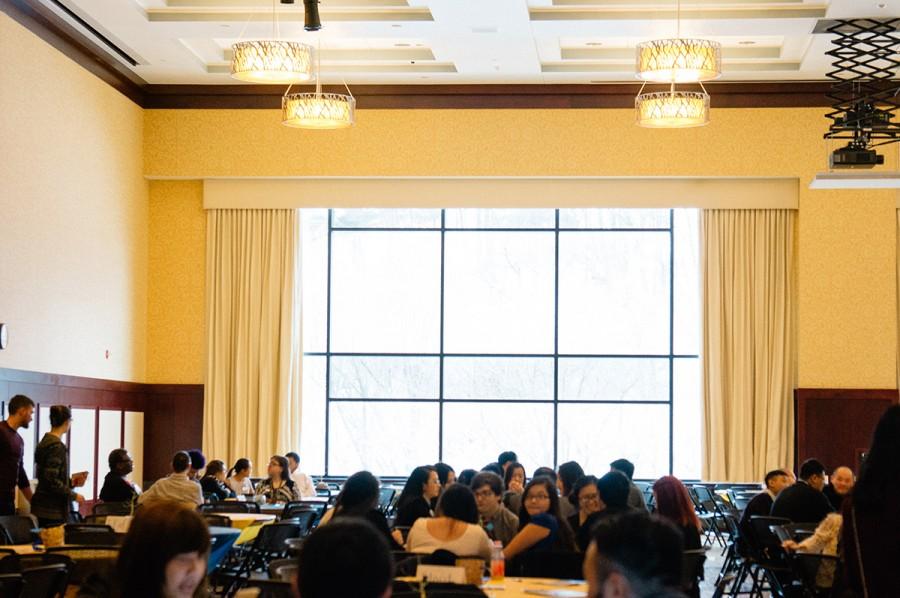Hmong Student Association presented 26th annual Culture Core
Encouraging dialogue and raising awareness for Hmong history and culture
More stories from Andee Erickson
Photo by Amanda Thao
The Hmong Student Association presented the 26th annual Culture Core Saturday in Davies. Speeches and entertainment were held in the Ojibwe Ballroom.
Rather than using the expression “giving voice to people,” assistant professor in education studies Anjela Wong said she amplifies the voices of the people systems ignore too often in order to perpetuate inequalities.
“However, no organization and individual can empower us, only we can empower us,” Wong, co-advisor of the Hmong Student Association, said to introduce the day’s theme, “Tools of Empowerment.”
The Hmong Student Association presented its 26th annual Culture Core Saturday in Davies. In order to bring Hmong students together from various schools to discuss Hmong issues while recognizing their history, events included keynote speakers and workshops, while food and entertainment were provided, Babs Vue, vice president of HSA, said.
“It’s about being in the same room as Hmong students and growing together,” Vue said.
The HSA executive board chose this year’s theme after considering the interests of its members and understanding many Hmong students find empowerment in their roots and understanding where their ancestors came from, Vue, a third-year organizational communication student, said.
“To be empowered we want to know our identity,” Vue said. “We want to remind everyone what starts your fire is what’s going to continue your fire and passions.”
Keynote speaker Bo Thao-Urabe shared her experiences as a multi-dimensional person in order to give the audience advice on becoming their most powerful selves.
As a social entrepreneur, Urabe holds several leadership positions including Commissioner to the White House Advisory Commission on Asian Americans and Pacific Islanders.
To become her most powerful self, Urabe said she embraces all of her identities and advised the audience not to view themselves as one identity, she said.
Being your most powerful self also includes unlearning what’s destructive, such as negative experiences in the classroom and workplace, Urabe said.
“The education that I received never taught me anything about people who look like me, people who had histories like mine,” Urabe said.
Sometimes there’s fear to become our most powerful self, Urabe said to the audience, because when there’s no one within the family or community who has achieved similar goals, it limits what we think our potential can be. Knowing that path doesn’t already exist should be used as a propeller, Urabe said.
“There are too many systems that are set in place that were not designed by us that make us feel inadequate,” Urabe said.
Using “lived experiences” can also provide the authority necessary to make changes, she said.
Experiences at the intersections of racism, sexism, heterosexualism and colonialism allow people to understand the power systems and therefore change them, Urabe said.
Elijah Vue, a junior kinesiology student, attended the event and also said empowerment can be found through identifying one’s multiple identities.
“You don’t have to identify yourself as one thing, but you can be multiple things,” Vue said. “This helps us raise other people up as well as ourselves.”
As far as unlearning what’s destructive, Vue said he’s currently trying to unlearn the oppression placed on his Hmong identity.
“It’s hard to grow out of these things you learn as a little kid,” Vue said. “It took me a long time to identify myself as a Hmong person.”
Xinxy Xiong, a sophomore business administration student and HSA member, said what he learned from Culture Core’s events can be applied to everyday-life.
“We take that knowledge,” Xiong said, “and use it to fight against racism on campus and in life.”

